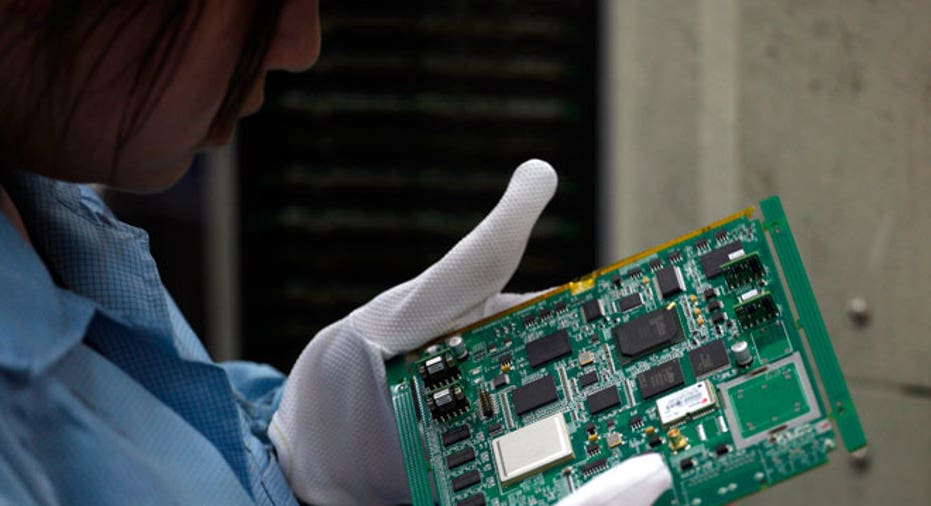Highly Skilled Immigrants a Key to America's Future

During his State of the Union Address, President Obama outlined his support for immigration reform, including measures that would enable high-skilled foreign-born engineers and entrepreneurs to stay in this country.
The Immigration Innovation Act was recently introduced by a bipartisan group of senators seeking to update the Science, Technology, Engineering and Mathematics (STEM) visa system. The bill, sponsored by Republicans Orrin Hatch and Marco Rubio, and Democrats Amy Klobuchar and Chris Coons, seeks to increase the number of STEM visas granted to highly skilled immigrants.
Rubio and Hatch reported that there are 120,000 computer-engineering jobs created annually in America. Meanwhile, a mere 40,000 college students graduate with degrees in computer science. Where will those workers come from? Allowing highly skilled immigrants to come here and fill those positions is one way to address the shortage.
Many immigrants who come to the U.S. start new businesses and create jobs. In fact, a 2011 report by the Partnership for a New American Economy found that 90 companies (18%) of Fortune 500 were founded by people who were foreign born. When one includes the children of immigrants, the figure skyrockets to 40 percent. In fact, some of America's best known brands, including AT&T, Budweiser, Ford, GE, Mattel, McDonald’s, P&G, and The Walt Disney Company, were created by immigrants or their children. Additionally, the new generation of technology powerhouses on the Fortune 500 list — Apple, Google, Intel, eBay, Yahoo!, Sun, and Qualcomm — were all founded by immigrants. Further, growing fields, like semiconductors and medical devices, are full of immigrant-founded companies.
American corporations started by immigrants or their children employ more than 10 million people worldwide. Meanwhile, the revenue generated by Fortune 500 companies founded by immigrants or children of immigrants is greater than the GDP of every country except the U.S., China and Japan, according to the Partnership for a New American Economy report.
While highly skilled immigrants contribute mightily to our economy, their arrival is met with disdain in some quarters. Sadly, some of them encounter incredible amounts of bureaucracy. One such example is Dr. Sumit Tiwari, a cardiologist at Tulane who is researching regenerative therapies for the heart utilizing one's own bone marrow stem cells. He went home to his native India to switch his J1 exchange visa to a O-1 visa and now is caught in bureaucratic red tape. His visa was approved after presenting all the required documents, but he remains in India because of an "administrative processing delay."
Meanwhile, his wife, also a physician, is practicing medicine in an under-served area of North Dakota while taking care of their 2 1/2 year-old child, who was born in the U.S. The delay will postpone the completion of Dr. Tiwari's training at Tulane, as well as the job offers he has received.
According to the AMA, there is a shortfall of cardiologists in America, and more than 43% of practicing cardiologists are over the age of 55. Barring an immigrant such as Dr. Tiwari, who has already been living in the U.S. for 9 years, makes no sense. The U.S. desperately needs talented young physicians, scientists, engineers and IT professionals. Immigrants can easily fill the gaps.
There are countless other "aliens of extraordinary ability" who have much to offer this country. America has a dearth of skills in science, technology, engineering and mathematics, yet the mention of "immigration reform" stirs much negative passions among many people.
From my own experience running Biz2Credit, I know first-hand that immigrant entrepreneurs are starting successful businesses, paying taxes, creating jobs, and paying off their small business loans. Prior to founding my company, I analyzed bank portfolios. Small business lending was and still is the most profitable segment for many banks. Furthermore, loans to immigrant small business owners were the least likely to default. I am not just talking about landscaping companies; we have seen a dramatic rise in start-up and expansion funding requests by IT companies, doctors and dentists, CPAs, and aspiring franchise owners. These business owners are professional, hard-working, law-abiding taxpayers. The American economy benefits from them.
Rohit Arora, co-founder and CEO of Biz2Credit, an online resource with a network of 1.6 million users that connects small business owners with 1,100+ lenders, credit rating agencies such as D&B and Equifax, and service providers such as CPAs and attorneys via its Internet platform. Since 2007, Biz2Credit has secured more than $800 million in funding for thousands of small businesses across the U.S.



















